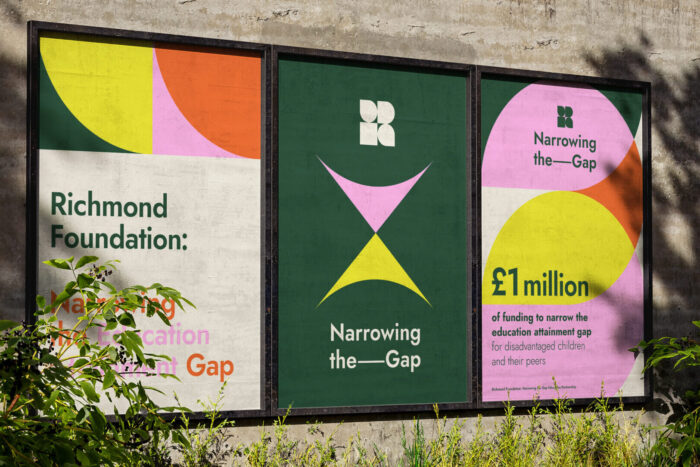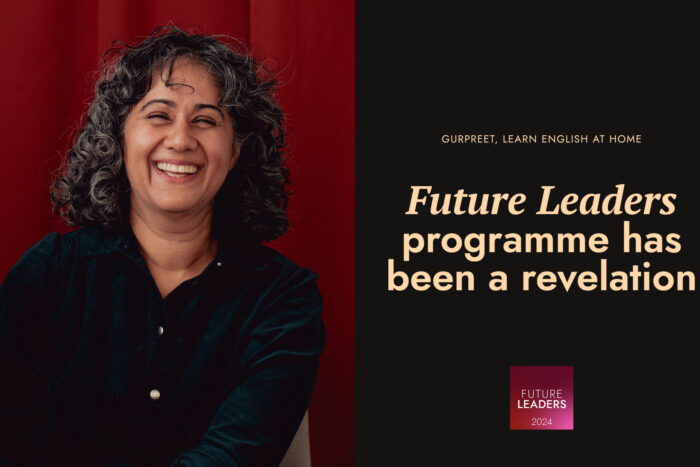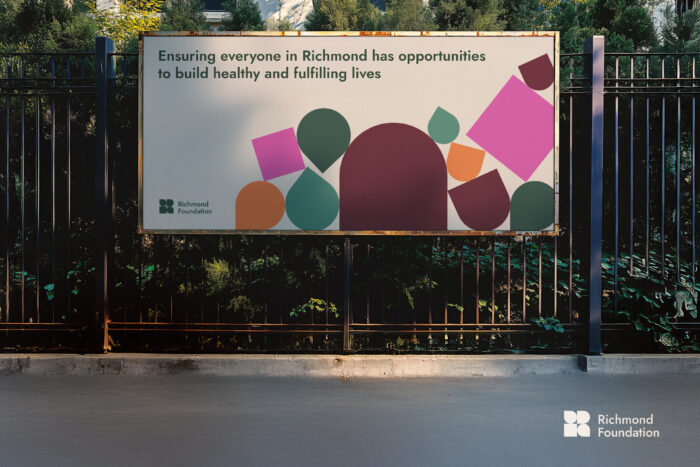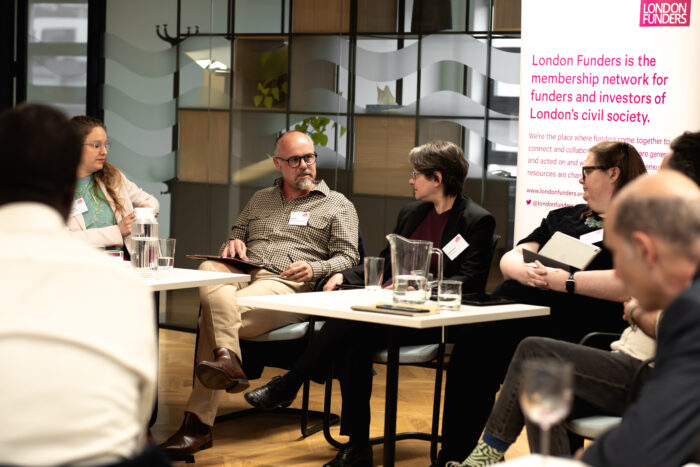An exciting series exploring the key challenges shaping the work of the future for the voluntary and community sector.
Explore the challenges shaping the future of the voluntary and community sector. In this series, our Future Leaders share insights on the obstacles they face and their vision of effective leadership in a changing world.
To learn more about Future Leaders — an innovative career development programme for senior managers and deputy CEOs — visit our Future Leaders page.
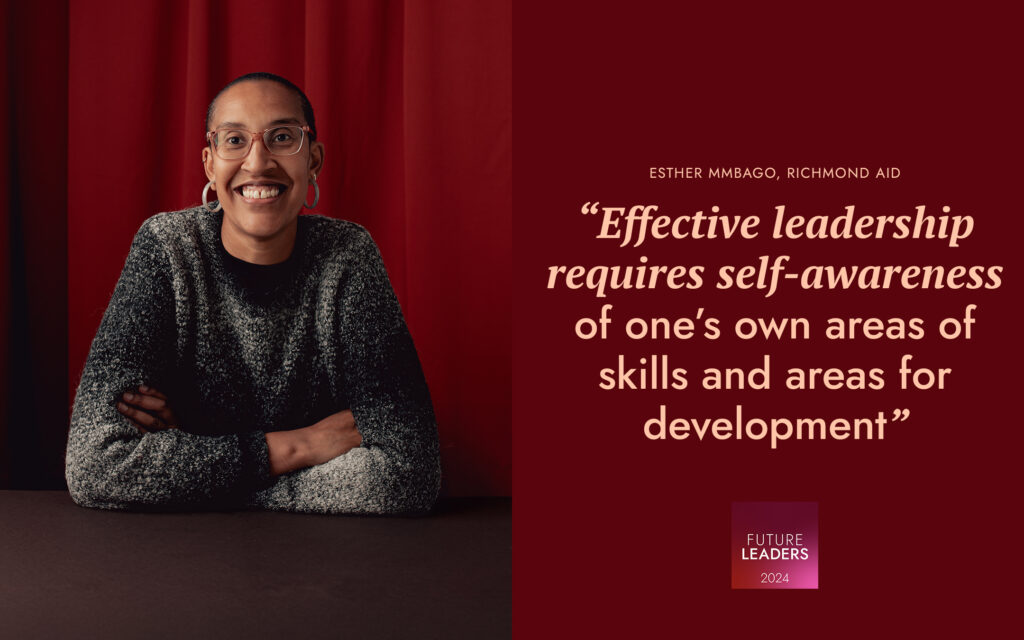
Esther Mmbago, Richmond AID.
What do you feel is the most significant challenge you’re seeing in your work right now, and how are you approaching it?
The workload – cost of living, welfare reform, lack of housing is having huge impact on the volumes of local Disabled people seeking help and support. Approaching it with all our resources possible but mindful that we need more funding to meet the every growing demands for help.
In your view, what does effective leadership look like, and how can it shape the sector for the better in the next three years?
I think effective leadership requires self-awareness of one’s own areas of skills and areas for development.
It involves being able to successfully motivate and inspire a team which is a challenge when the sector is face by heavy workload, funding and demand for services. I work with incredibly skilled and knowledgeable individuals but I am mindful that the current environment can be emotional and stressful.
I think part of the effective leadership is taking action to prioritise wellbeing across the team. This is difficult when the workplace is so busy but being able to lead the sector and develop a positive working environment can make the difference between success and failure.
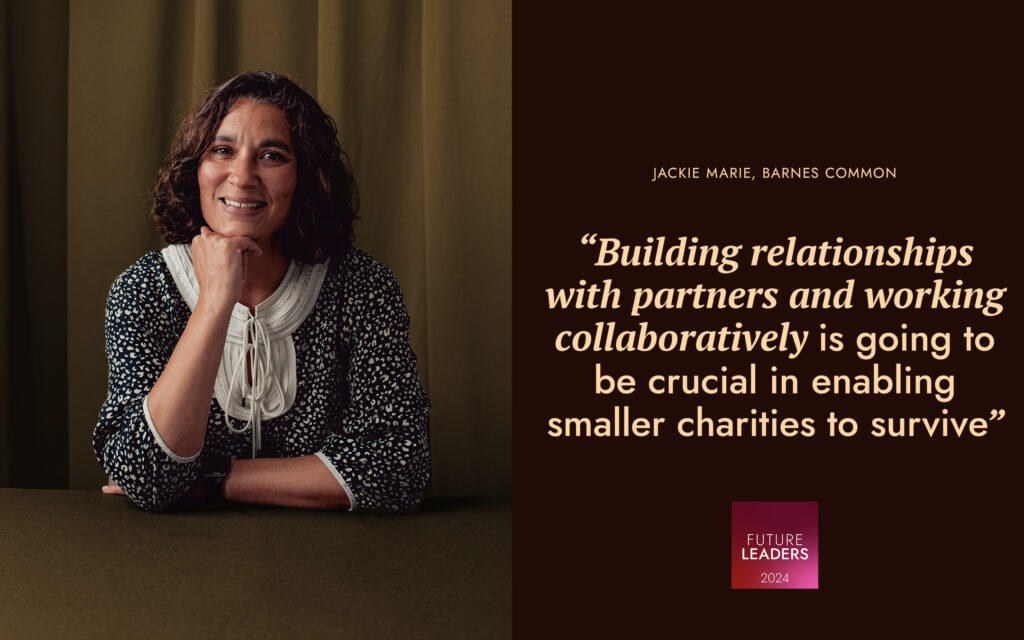
Jackie Marie, Barnes Common.
What do you feel is the most significant challenge you’re seeing in your work right now, and how are you approaching it?
As a conservation and education charity we have a unique challenge. Although most people acknowledge climate change and the need to do our bit for the environment, when there are other more pressing people-based challenges, such as a cost-of-living crisis, the environment drops to the bottom of the list. This is especially evident when it comes to funding.
Recognising this, we have reflected over the years on our work in the community and the many wellbeing and social benefits of the work we do, particularly with our community growing project and volunteering. Focusing in on these benefits of the work we are already engaged in has enabled us to gain funding to support this work while growing the wellbeing activities we can offer to the wider community and engaging harder to reach groups. This has also helped us to recognise the wider social value offered by our work and in fact earlier this year we were included as a case study for LBRuT which can be viewed on the council website.
In your view, what does effective leadership look like, and how can it shape the sector for the better in the next three years?
Effective leadership is leading with integrity and kindness, always being transparent, flexible and collaborative.
Building relationships with partners and working collaboratively is going to be crucial in enabling smaller charities to survive in the coming years. Partnerships enable charities to share resources, offer additional services and reach the wider community. This benefits everyone.
Being a mentor to your staff, encouraging them and supporting them in their role and development is an important part of leading. Including the staff team in the decision-making process provides an opportunity for them to feel valued, included and listened to. The charity benefits from the team’s experience and skills, as well as their on the ground knowledge. Leading in this way provides a happy environment where the charity and its staff can grow together, benefitting its service users.
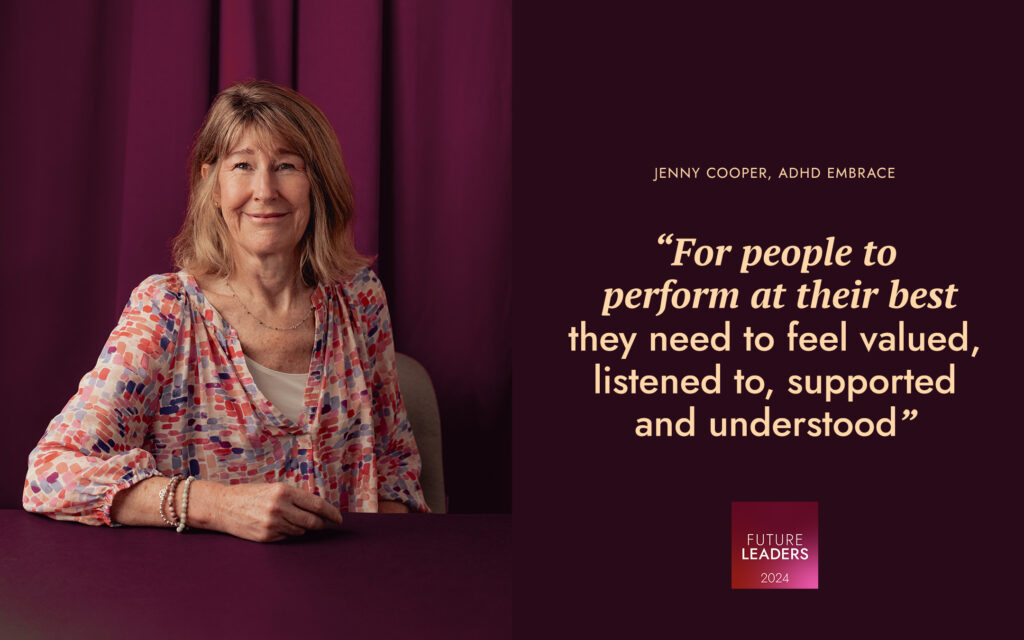
Jenny Cooper, ADHD Embrace.
What do you feel is the most significant challenge you’re seeing in your work right now, and how are you approaching it?
As for many in the charity sector, demand for our service continues to rise.
We have many families in our community struggling to access assessment and diagnosis services for their young people, as well as many facing challenges in their education settings. This means that we constantly need to review services and juggle priorities in order to be best placed to support those we are set up to serve, while simultaneously looking after the well being of our staff team.
In order to do this we need to be flexible in our approach and set up to manage change. An important part of this is to ensure that our team is prepared accordingly, and that we are all pulling together and working towards a common goal.
In your view, what does effective leadership look like, and how can it shape the sector for the better in the next three years?
I believe that effective leadership in the sector goes hand in hand with effective change management.
Things never stand still for long and change is inevitable. Being able to effectively lead people through this by providing direction and a clear vision, as well as supporting those on the journey are important aspects of leadership.
This leads me on to empathy, which is more and more being regarded as a critical leadership skill – and I couldn’t agree more. For people to perform at their best they need to feel valued, listened to, supported and understood particularly in a sector that while rewarding, can also be very demanding at times.
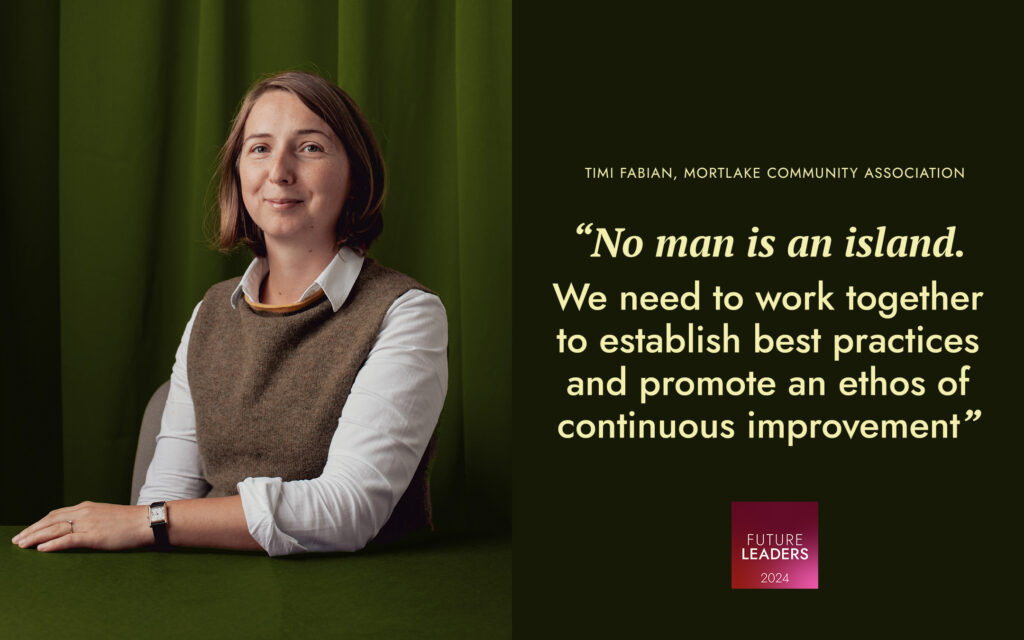
Timi Fabian, Mortlake Community Association.
What do you feel is the most significant challenge you’re seeing in your work right now, and how are you approaching it?
The most significant challenge in my line of work right now, I think, is the volume of responsibilities that the third sector takes on as a result of the overstretched health and care sectors, whether voluntarily or not. We see more users coming to us with severe mental health issues, frail health, personal challenges that they have been let down with, such as social housing disrepair issues and families who find themselves in crisis. Under normal circumstances, this would not fall under our umbrella; however, post-COVID, all services are incredibly stretched, so we try to support users as best we can.
The good news in Richmond Borough is that we have an incredibly robust and cooperative third sector, so we all help each other to support our residents. Equally, initiatives like the Future Leaders programme will equip us to manage current and future challenges with confidence and in an impactful way.
In your view, what does effective leadership look like, and how can it shape the sector for the better in the next three years?
Effective leadership, in my view, means bringing out the best in the people we lead. It involves recognising and nurturing the talent around us, creating a positive environment where these talents can thrive. Effective leadership is resilient, compassionate, fair, honest, and humble enough to recognise that one cannot do it all alone.
Effective leadership is also about collaboration across the sector. As mentioned above, no man is an island. We need to work together to establish best practices, promote an ethos of continuous improvement, and create a pipeline of talent across the sector.
In summary, effective leadership is about empowering others, leading with integrity, and building a dynamic and resilient sector that is well-equipped to meet the needs of our community at all times.
Stay tuned for more valuable insights from the 2024 Future Leaders!


